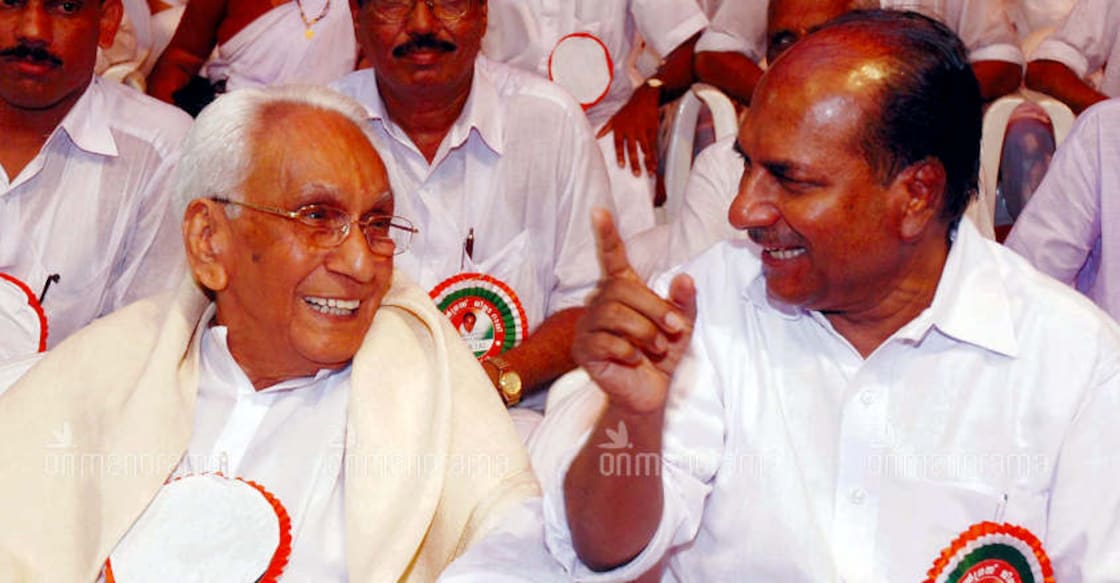Karunakaran wouldn’t have allowed BJP to grow in Kerala: Antony

Mail This Article
Thiruvananthapuram: Congress leader A K Antony painted his once bete noire K Karunakaran as a “blazing secular force” from where a weakened Congress should derive the strength to revive itself. Antony said that Karunakaran's biggest strength was that he was trusted by all communities.
“It was this trust that he leveraged to bring down the EMS ministry (the Sapthkakshi Munnani) in 1967,” Antony said and added: “And it is this trust the Congress has lost today,” Antony said at a function organised by Leader K Karunakaran Study Centre to mark the 100th birth anniversary of K Karunakaran on July 5.
Antony was in such an effusive mood, even a bit nostalgic, that he said that the BJP would not have opened its account in the state had Karunakaran been alive today. He recounted how Karunakaran defused the Nilakkal issue “without even resorting to a lathicharge”. He was referring to the Hindu-Christian standoff in 1983 when a stone cross was found near the Nilakkal Mahadeva temple.
The discovery led Christians to believe that Nilakkal was the site where St Thomas established the first ever church in the country, in the first century. Karunakaran, in a shrewd move, granted a hectare to the Christians to construct a church in Nilakkal at the site of their choosing. However, the cunning politician that he was, he simultaneously encouraged the alliance of Hindus, Vishal Hindu Sammelan, to keep up the pressure. He also inspired the Sarvodaya movement to take on a mediator's role. The chief minister kept both the sides in good humour, and eventually the Christian bishops agreed to move the church to another place. “It was almost like magic, what Karunakaran had achieved then,” he said.
Antony said that this universal trust that the Congress had once enjoyed under Karunakaran was gradually drifting away from the Congress. This, he said, has been revealed during the Chengannur byelection. “The CPM made all sorts of compromises with communal and social leaders, and we were unable, we didn't even try, to retain their trust,” the Congress veteran said.
Antony wanted Congress to once again stitch up a grand alliance, the way Karunakaran shrewdly and meticulously did in 1969. He recalled how Karunakaran stole the thunder from under a seemingly invincible EMS Government in 1967 (the Left front had 111 seats in a 133-member Assembly), to form the most stable government in the history of the state. “He took the lead in talking to diverse parties like the CPI, and the Muslim League,” Antony said.
“Though Congress was the single largest party, Karunakaran did not think twice about handing over the reins to the CPI. Not once did he even dream of asking for the chief ministership,” Antony, who was then the UDF convenor, said.
Antony, though he is by his own admission one of the architects of factionalism in the state Congress, was highly critical of the group war in the Congress now. “Then, even when our differences were at their strongest, we had this unwritten rule that everything will be brushed aside for the common good of the party,” he said and added: “The present lot should ensure they don't write the epitaph of the party.” Antony said that not even in the deepest core of his being did he he hold a grudge against Karunakaran. "All of that has been lost to time," he said.


